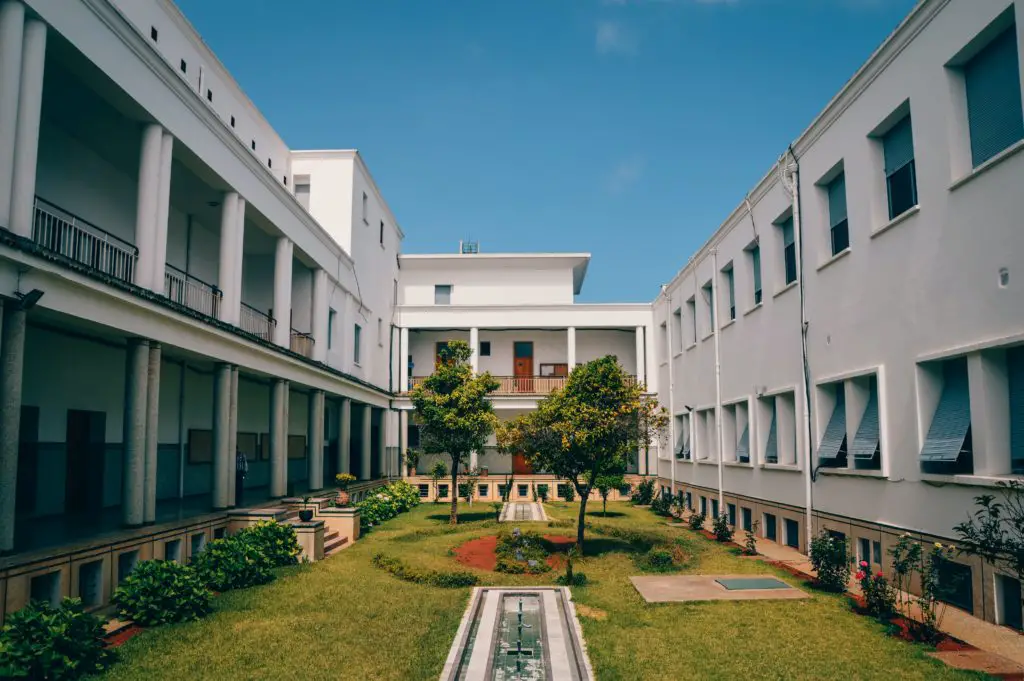Although it is one of the most prestigious universities in the United States of America and the world, offering courses in business and law, Drake University located in Des Moines, Iowa, is not considered an Ivy League university. Not only do you have to be a private establishment to attain the status of being an Ivy League School and gain respect, but you also have to meet other factors. These factors are reputation, competition, historical benefactors and educational value. Is Drake An Ivy League School?

What is an Ivy League school and what qualifies as an Ivy League school?
Throughout history, higher education in American media has been assimilated by the standard of being able to attend an Ivy League University. It is therefore not surprising that not much is known about what qualifies a university of such status – as it is seen as “the norm”.
Firstly, it is the extraordinary selective application process and the prerequisites placed on potential students. Student applicants are expected to be versatile across numerous disciplines such as sports, academics, and cultural activities.
Secondly, the element of excellence from educator to student is part and parcel of the qualities that are found within these schools.
Thirdly, location is seemingly a huge factor as it contributes to the size of these schools as well as the exclusivity. Dartmouth University, despite being the smallest school amongst the rest, its location has made it rather notable; Hanover, New Hampshire has also been dubbed as one of the best locations to reside in, as it is considered to be one of the best college towns.
Which schools are Ivy Leagues: examples and what they are famous for?
Due to the selective nature of these schools, it becomes apparent that they exist within a rather intimate community, which is why there is a limited number of these types of universities. The most well-known institutions are Harvard University and Yale University, closely followed by the likes of Princeton and Brown.
Household names like Harvard are known for being traditional structures of higher learning, in this case, Harvard is one of the oldest universities in America. Harvard maintains an outstanding academic record as well as being famous for producing pioneers in most industries. This makes Harvard an instrumental part of American society and history.
Harvard’s counterpart Yale, which is of equal popularity, is mostly known to shine in the department of the arts mainly in drama and music. On this basis, Ivy Leagues offer different educational experiences to students in order to spark various interests and achieve different academic goals and statuses.
Which public figures have attended Ivy League Universities?
It is to be expected that individuals who attend such institutions are closely followed post-graduation especially when they succeed in their designated environment. The likes of actor Tommy Lee Jones and former United States Vice-President Albert Arnold Gore popularly known as Al Gore, cannot be separated from Harvard. The list of notable names also includes John F. Kennedy the 35th president of the United States, the 44th as well as the 1st black president of the United States, Barak Obama. The social media innovator Mark Zuckerberg is also listed here and that simply proves the following: the quality of students at these universities are deserving of all the attention and the selective hurdles put in place, hence why there will always be competition when attempting to gain entrance.
Remaining true to the nature of the arts, Yale’s most notable alumni are on-screen leading women: Oscar-winning actors Meryl Streep and Lupita Nyong’o, the proof is in the pudding when it comes to these institutions in terms of a success rate as former students have proven themselves to making remarkable strides after leaving their alma maters.
What separates Ivy League from other universities?
What is clear from the onset is that the key differences between Ivy League Schools and any other form of a higher education institution are exclusivity and privatisation. By presenting themselves as being prestigious as well as being successful, these schools have distinguished themselves from their peers. The cost factor cannot be excluded from the conversation when discussing Ivy schools. The tuition is often significantly higher compared to state schools, yet this does not disqualify potential students from disadvantaged backgrounds as the funding opportunities available tend to match the prestigious identities of Ivy League Universities.
Conclusion
Finally, it can be said that education is education but what is offered at an Ivy League institution is highly attractive – from famous alumni to the history and heritage present, it comes as no surprise why these schools remain a recurring factor not only in popular culture but also in the arena of world politics and influence. Throughout this article, if you have asked yourself if these schools are worth the cost, they most definitely are.